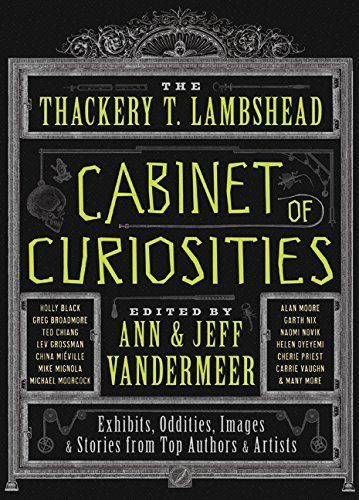
The Thackery T. Lambshead Cabinet of Curiosities Exhibits, Oddities, Images, and Stories from Top Authors and Artists
The death of Dr. Thackery T. Lambshead in 2003 at his house in Wimpering-on-the-Brook, England, revealed an astonishing discovery: the remains of a remarkable cabinet of curiosities. A carefully selected group of popular artists and acclaimed, bestselling fantasy authors has been assembled to bring Dr. Lambshead’s cabinet of curiosities to life. Including contributions from Alan Moore, Lev Grossman, Mike Mignola, China MiÉville, Cherie Priest, Carrie Vaughn, Greg Broadmore, Naomi Novik, Garth Nix, Michael Moorcock , Holly Black, Jeffrey Ford, Ted Chiang, and many more.
Reviews
(Bre)anne✨@breanne
Emmett@rookbones
Natalie@gigameow
Highlights
(Bre)anne✨@breanne
Page 46
(Bre)anne✨@breanne
Page 17
(Bre)anne✨@breanne
Page 16